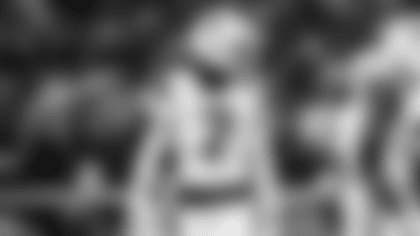[

These Cleveland Browns have never beaten the Dallas Cowboys. These Browns – the new Browns, founded in 1999 as a sequel to the historic original franchise. They are 0-2 against Dallas in the regular season heading into today's important matchup.
The Paul Brown Browns, however, certainly had the Cowboys' number over the years, beating up on the NFL newcomers for the majority of the 1960s in a series of matchups that bloomed into a classic rivalry, including three playoff games. After the league's 1970 merger, when Cleveland moved to the AFC, the rivalry unfortunately faded into history, with the teams meeting only sparingly in the regular season until the late Art Modell relocated the club to Baltimore in 1996.
The Cowboys' luck in their series with the Browns-Ravens lineage has taken a turn for the worse, of course, with Dallas having never beaten Baltimore in four tries, including the heartbreaker earlier this season and the woeful Week 16 matchup in 2008, when the Ravens turned out the lights on Texas Stadium with a 33-24 victory.
These things go in cycles, evidently. The original Browns whipped Tom Landry's upstart team in each of their first four meetings, beginning with their first game, in Week 4 of the Cowboys' expansion season, 1960. To that point, the team of undrafted rookies and castoffs from other clubs had acquitted itself fairly well against established NFL competition, having lost to the Steelers, Eagles and Redskins in consecutive weeks, but only by a combined 21 points.
The Browns welcomed the Cowboys into the NFL rather rudely, however, one gorgeous October afternoon at the Cotton Bowl, allegedly in front of 28,500 fans, though many reports suggest the stadium wasn't nearly as full as the club claimed in those early days. Cleveland scored first on a 46-yard carry by future Hall of Fame runner and receiver Bobby Mitchell in the first quarter, before the great Jim Brown plowed in from five yards out in the second. Mitchell then jaunted 30 yards to make the score 21-0 as the floodgates opened, with the Browns returning an interception for a score before halftime, and Mitchell coasting 90 yards for another touchdown on the opening kickoff in the second half. The Browns led 48-0 before backup quarterback Don Heinrich tossed a garbage-time touchdown to Billy Howton.
It was a sign of things to come that season, as the Cowboys went on to post an 0-11-1 record, managing one tie, late in the season against the Giants, while falling by multiple scores in six of the seven losses to come following the trouncing by Cleveland.
The Browns would repeat the favor twice in 1961, as they joined the Cowboys, Steelers, Eagles, Giants, Redskins and St. Louis Cardinals in the newly formed Eastern Conference. That October, they knocked off a surprisingly 2-0 Dallas team, 25-7, at Municipal Stadium in Cleveland, and in December helped eviscerate any hopes of a playoff berth for the Cowboys by beating them 38-17 in Fair Park, in the second of four straight Cowboys losses that sunk their record to 4-9-1.
The Browns won a 19-10 decision over Dallas at home in the teams' first meeting in 1962, but the second matchup was a different story, seen as something of a pivot point game for the Cowboys franchise and their young quarterback, Don Meredith. Dallas had jumped out to a fine start to the season again, sitting 4-3-1 on the year before losing five of their last six. The lone exception came on Dec. 2, when they tanned the Browns, 45-21, at the Cotton Bowl, in arguably the best performance of the club in its existence to that point.
"You writers and the football public here don't realize what a fine team you have here in Dallas," Paul Brown, an admirer of Landry's, told the assembled media after the game. "You folks just don't seem to realize this team can give you a championship. They outplayed us all the way … they deserved to win. I congratulate Tom for a fine job.
"Dallas was an inspired team. They'd never beaten us and it had to come sometime, and they did it to us good today."
The Browns had traded Cowboys-killer Mitchell to Washington the previous offseason (he scored on a 92-yard kickoff return against the Cowboys in his first game with the Redskins) and Dallas managed to hold Jim Brown to only 29 yards on eight carries. Meanwhile, Cowboys running backs Don Perkins and Amos Marsh combined for 209 yards on the ground, while Meredith was 10-of-12 passing for 147 yards and two touchdowns, keeping Cleveland's defense off balance all day.
Meredith had been struggling in previous games, and hadn't yet wrestled full-time duties away from veteran Eddie LeBaron, but the fine day against Cleveland was a prelude of what was to come in his career.
"Meredith certainly had better results today," Landry said after the game he called the Cowboys' "best showing against a good team at home."
Still, that impressive day remained the exception rather than the rule in the early years of the series. The Cowboys continued to muddle along in mediocrity while the Browns remained among the NFL's elite. Cleveland won the next seven games in the series, not to mention an NFL Championship in 1964, while the Cowboys didn't even experience their first winning season until 1966.
Once Jim Brown retired after the 1965 season, the series turned a bit. Dallas won a measure of confidence that year with a 26-14 home win over a good Browns squad on Thanksgiving, the Cowboys' debut on the holiday, in what would become an annual tradition. By 1967, the ghosts of Cleveland's domination had been fully exorcised, or so it would seem. The Cowboys beat Cleveland twice that year, including a 52-14 destruction of the Browns in the Eastern Championship Game, the first playoff win in the club's eight-year history.
A week later, on New Year's Eve, the Cowboys lost to Green Bay on a last second Bart Starr sneak in the NFL Championship, the game better known as the Ice Bowl. It was the beginning of the Cowboys' "Next Year's Champions" era, though the unwanted legacy was only furthered by playoff slip-ups against … Cleveland.
After beating the Browns convincingly in their run to a 12-2 record in 1968, the heavily favored Cowboys fell to the Browns in the Eastern Championship Game.
"A whole year shot in two-and-a-half hours," Cowboys general manager Tex Schramm surmised afterward.
It turned out to be the last game of Meredith's career and a rather disgraced ending. He completed only three of nine passes, connecting with the Browns as often as his own receivers. Meredith's interceptions led to 17 Cleveland points, and he eventually gave way to Craig Morton under a deafening swarm of boos, the Cotton Bowl crowd en masse deciding their team could never win with Dandy Don, despite the fact he'd posted his best season yet in 1968.
"We needed a psychological lift," Landry said following the loss. "Morton was the only thing I had that I could use. I took Meredith out not so much for what he was doing, but to try to shake them up. … I hated to take him out. In my opinion, he wasn't wholly responsible. I don't know what he will do (in the offseason). I can't speak for him, but you can bet he feels worse than anybody right now about this game.
"I wouldn't say (we) got whipped physically – it was more mentally than physically."
With Meredith retiring after the season, Morton accepted the offensive reins, but his luck against the Browns and in the playoffs was no better. He threw three picks in a 42-10 Week 7 drubbing at Cleveland in 1969, one of just two Cowboys losses in the regular season. Yet again, Dallas was favored in an Eastern Championship matchup with the Browns, and yet again they came up short. Way short.
The Browns jumped out to a 24-0 lead at the Cotton Bowl, and put the finishing touches on the game when Walt Sumner returned a Morton interception 88 yards for a fourth quarter score. Roger Staubach took over for Morton, but the lead was too far out of reach even for "Captain Comeback," and the Browns advanced with a 38-14 victory.
"We're not choke-ups," receiver Bob Hayes said after the game. "There were 40 guys out there and every one of them played his heart out. … I don't know what happened. Nobody does. It's a mystery to all of us. We were ready.
"I looked over to our bench and I could see shoulders sag. Guys who had been eager and jumping to get into the game seemed to be saying, 'Oh no, here we go again. You play hard to get to this game – the playoffs – and you either have it or you don't have it. We didn't have it. Why? It's a mystery to me. We've been pointing to this particular game since last September. It's one we knew we had to win. We have to win a big one to shake off this image. Some day we're going to do it."
The Browns had played a huge role in the Cowboys' earning of the "Next Year's Champions" moniker. Cleveland had dominated the all-time series to that point, with 14 wins against only five losses, but Dallas has gotten the best of Browns since, winning seven of the 10 matchups between the clubs. None of the games was bigger than 1970, the Browns' first year in the AFC, when chance pitted the teams in a late season battle once again. The Cowboys had opened the season 5-4, and needed a serious winning streak late in the season to earn a playoff spot. On a muddy, near-freezing day at Municipal Stadium, Dallas triumphed 6-2, the product of two Mike Clark field goals and an excellent day for Landry's defense, which shut down the Browns running game and recorded four takeaways.
When the Cleveland franchise was reformed in 1999 – four years after the original club moved to Baltimore – their first preseason outing was against the Cowboys in the Pro Football Hall of Fame Game in Canton, Ohio. It would prove to be a remarkable night, not only for the Browns' rebirth, but also as the rare preseason contest that reached overtime, something coaches typically try their best to avoid.
Jim Brown, Bobby Mitchell, Don Meredith and Bob Hayes had given way to the likes of Karim Abdul-Jabbar at running back and Tim Couch at quarterback for the Browns, with backups such as Ryan Neufeld and Singor Mobley playing big roles for the Cowboys by the end, when Cleveland's Phil Dawson decided the game with a field goal.
"It's good to see the Dawg Pound back in the NFL," Troy Aikman said afterward, welcoming the return of the new, old Browns, three years after their apparent demise, and some 30 years since they last played the Cowboys for something truly meaningful.
The teams had certainly played bigger contests, but the history behind the preseason opener made it at least noteworthy, just like today's game, echoes of an all-but-forgotten rivalry.






